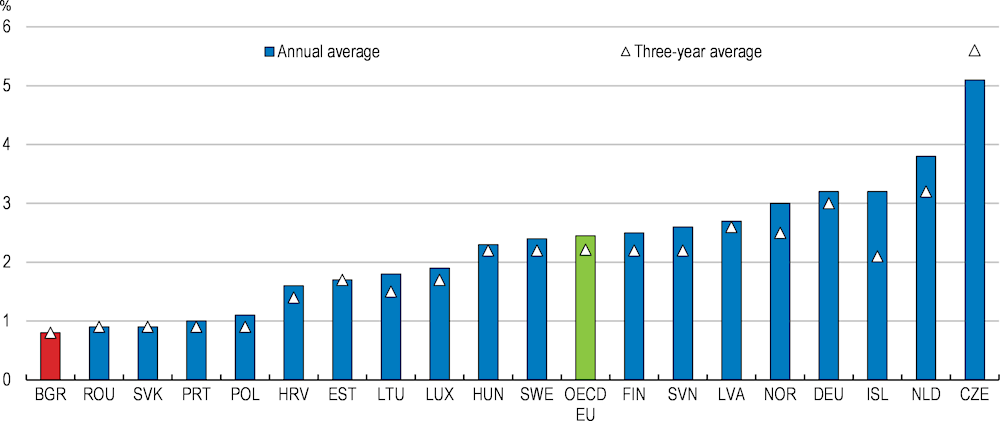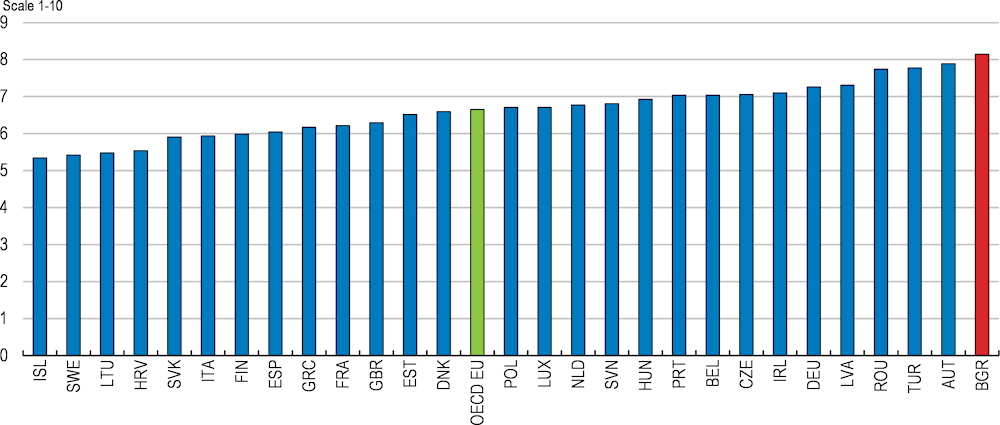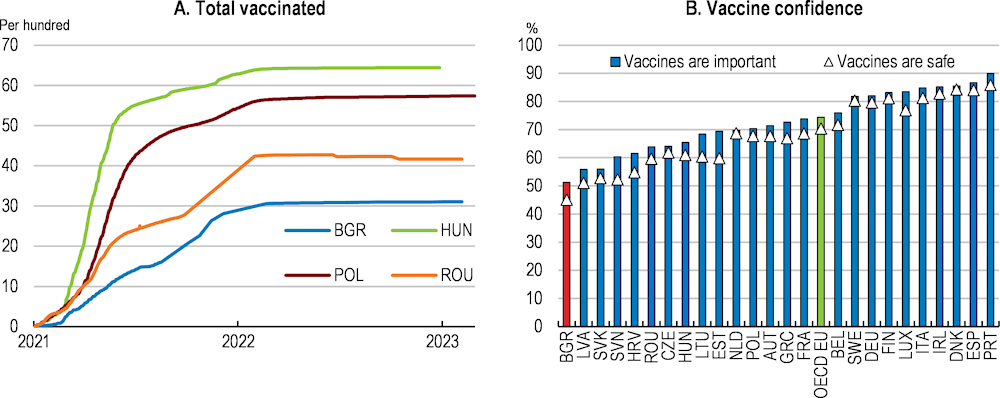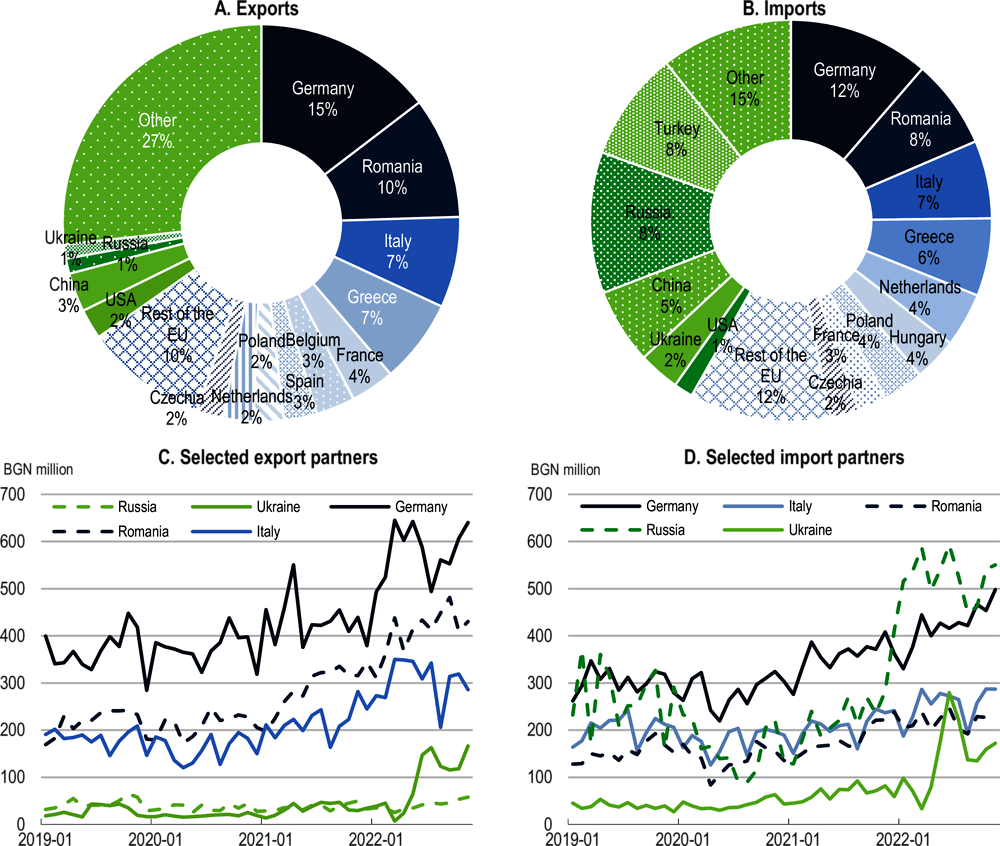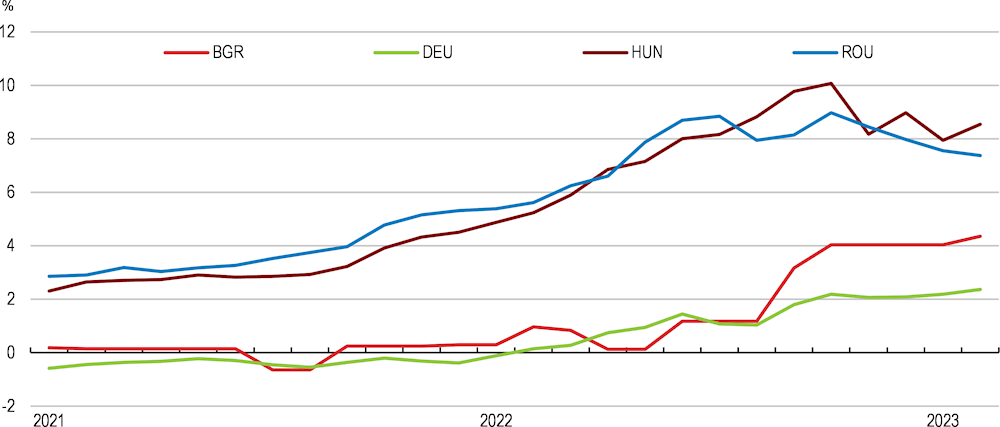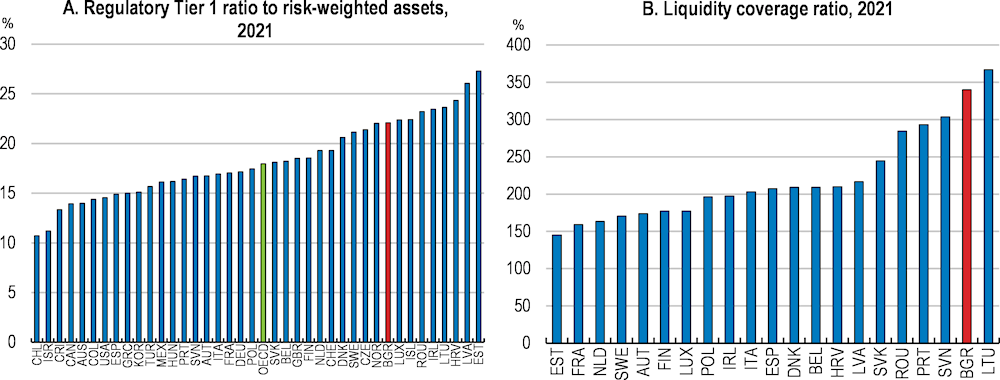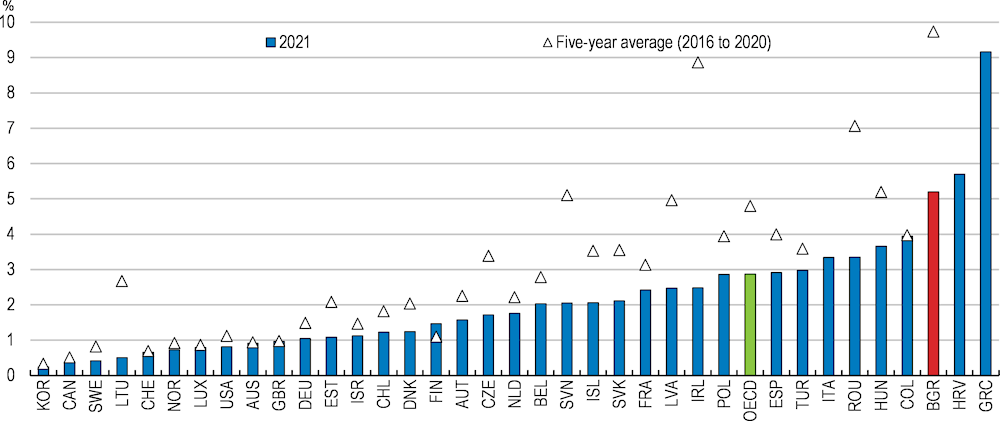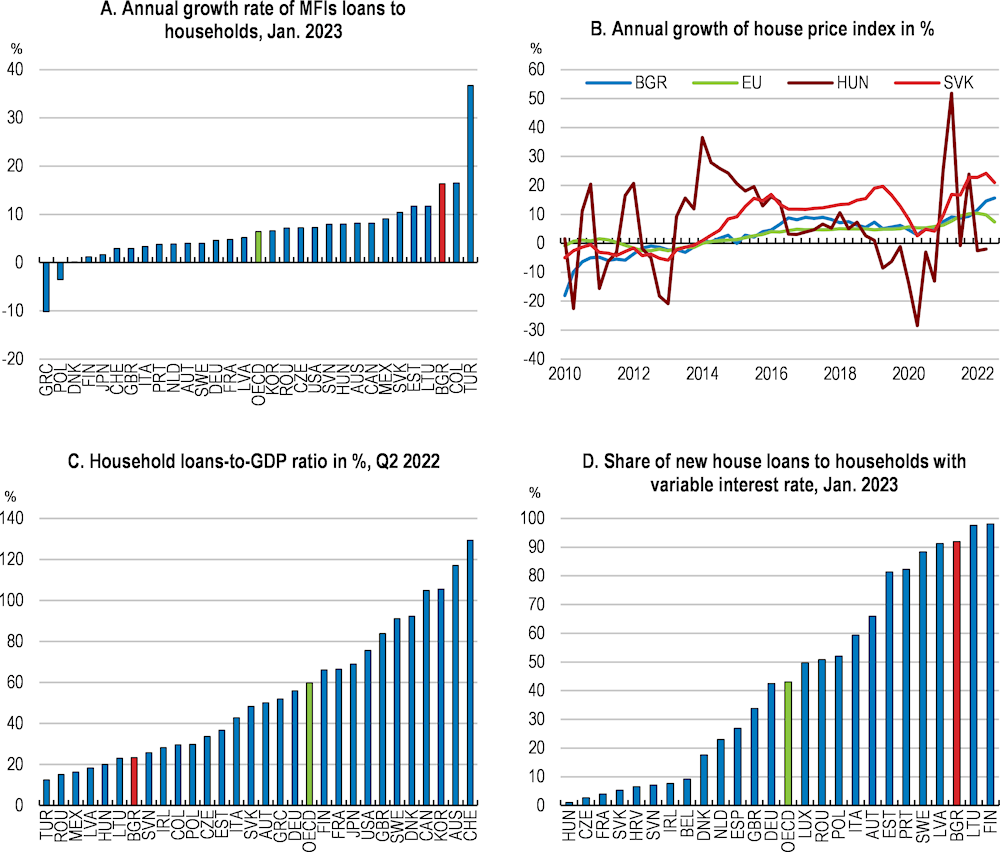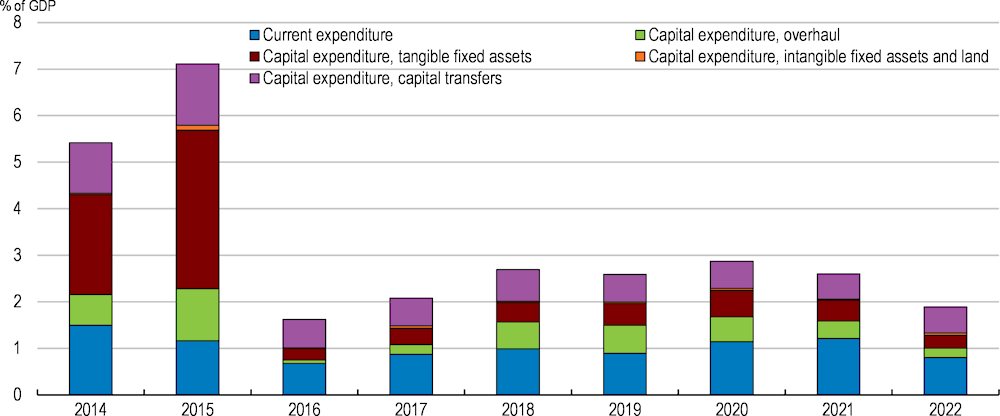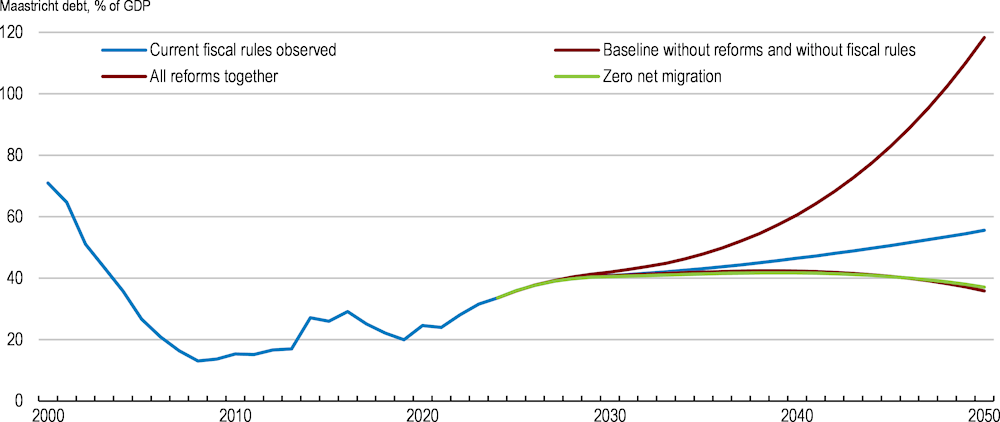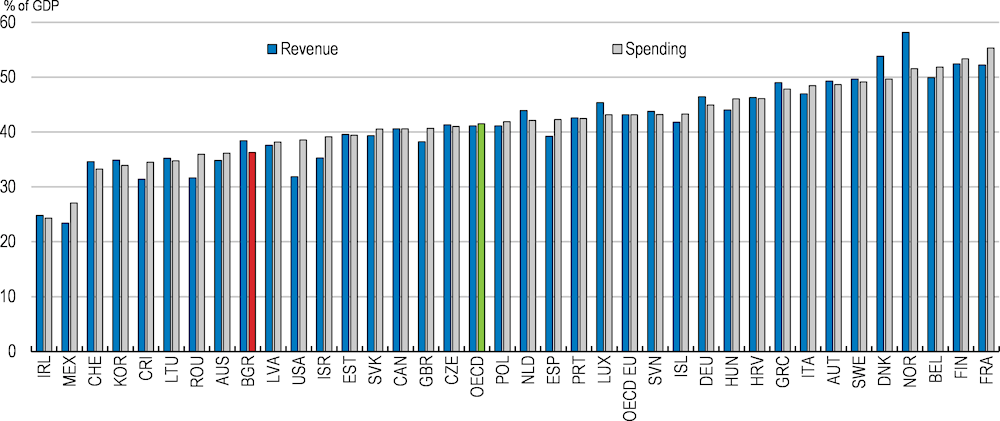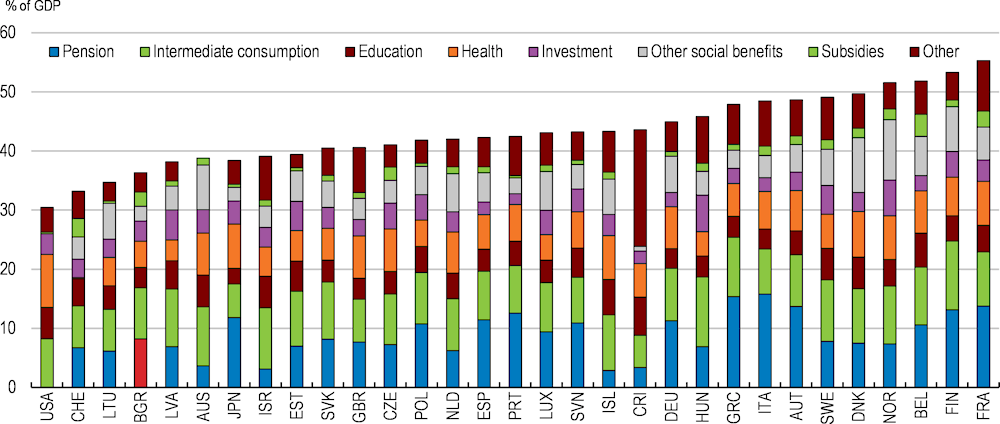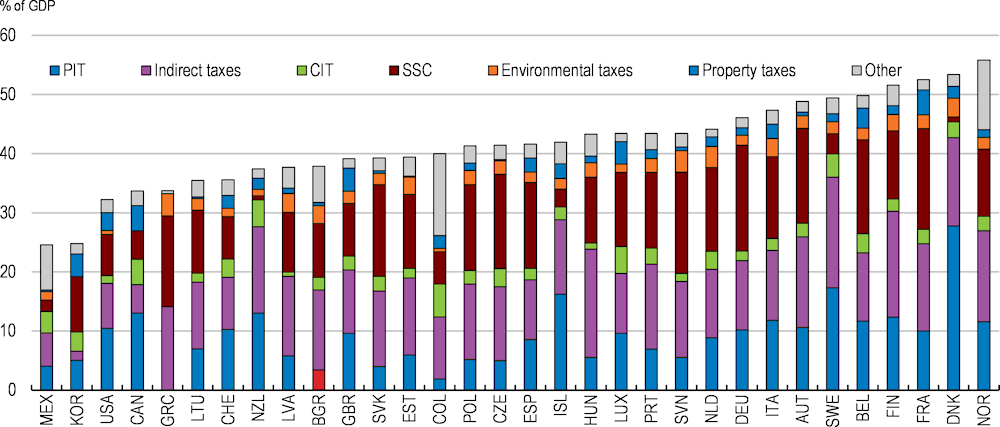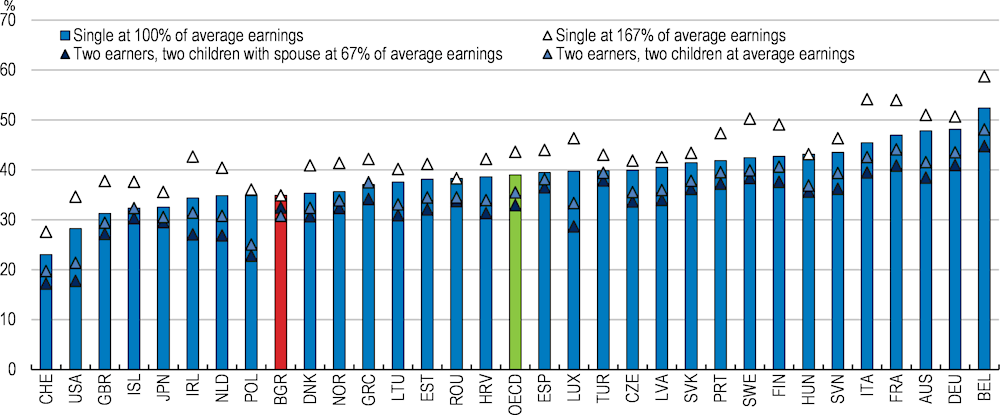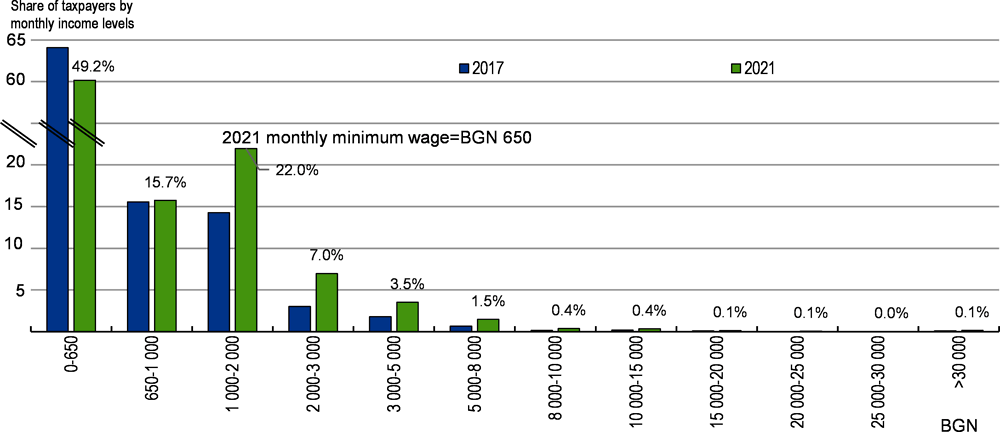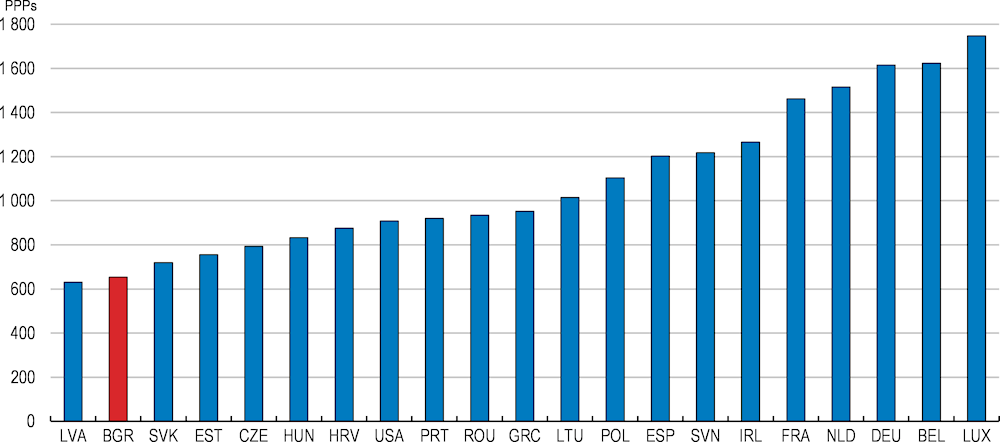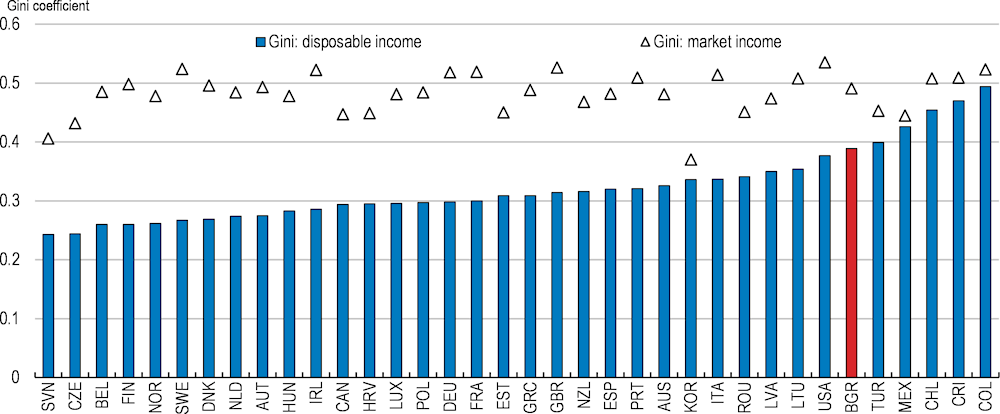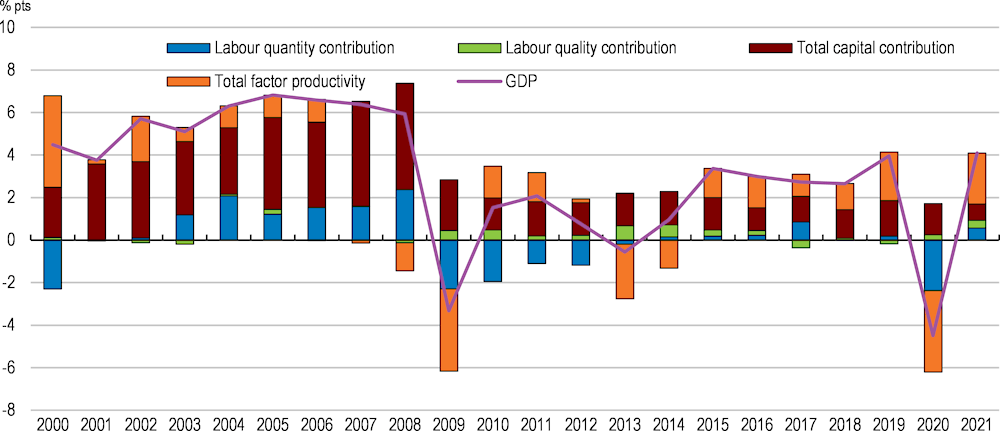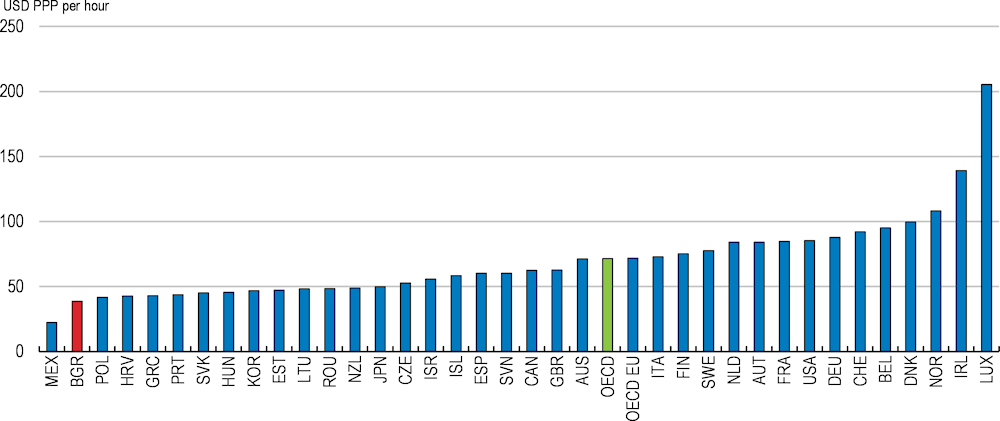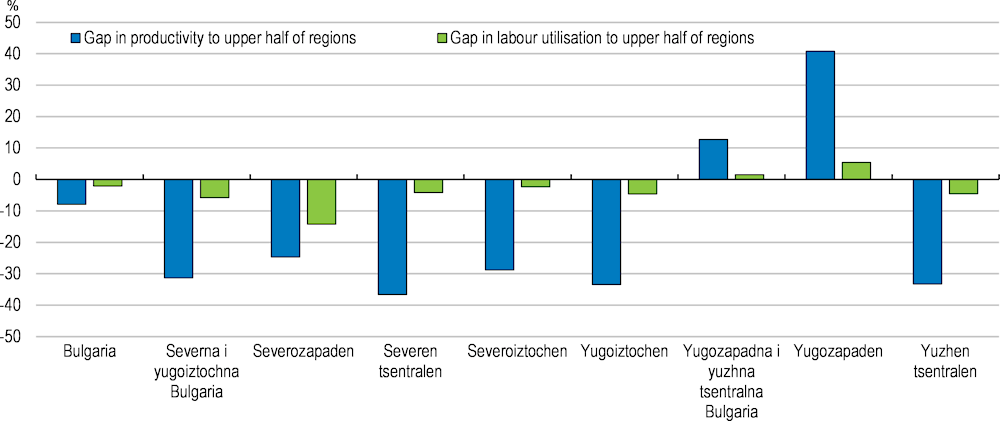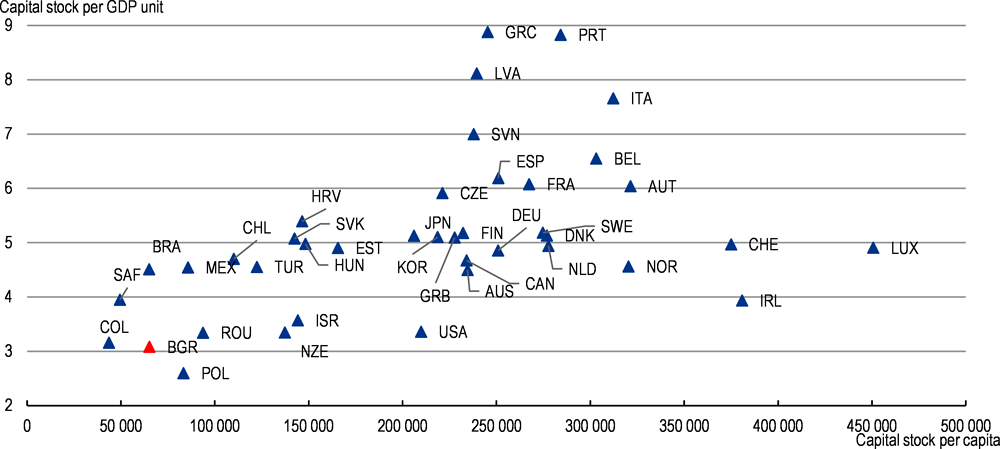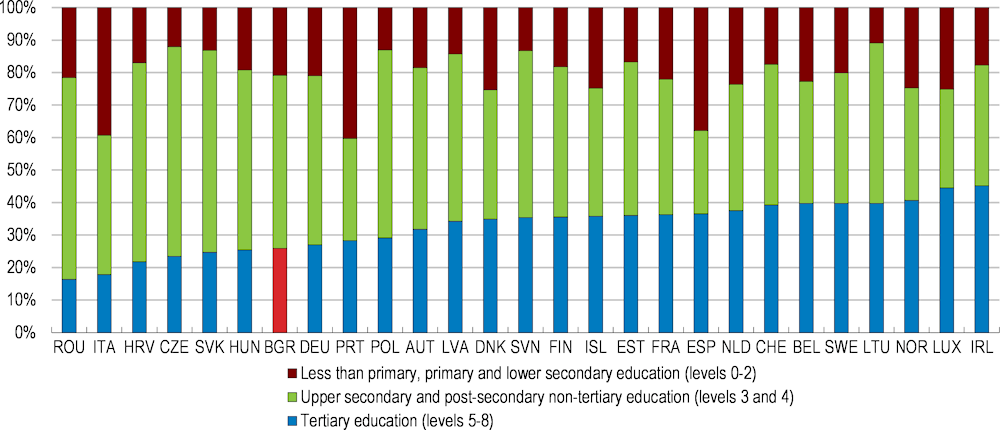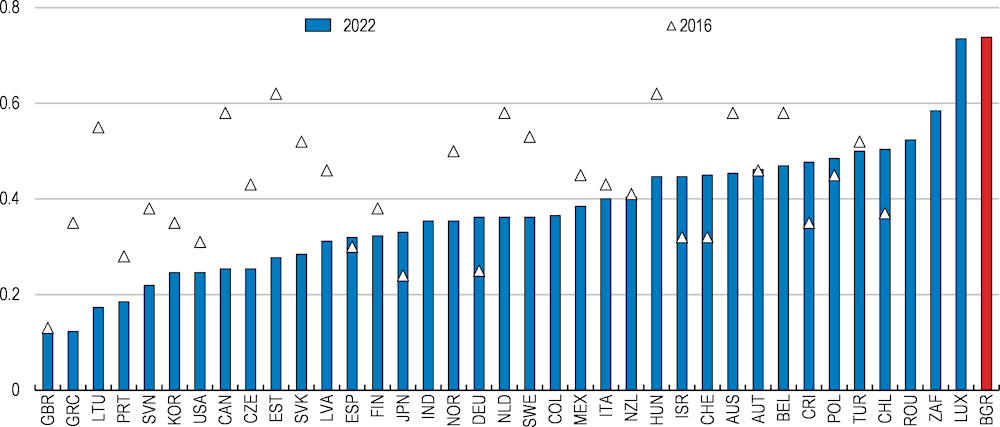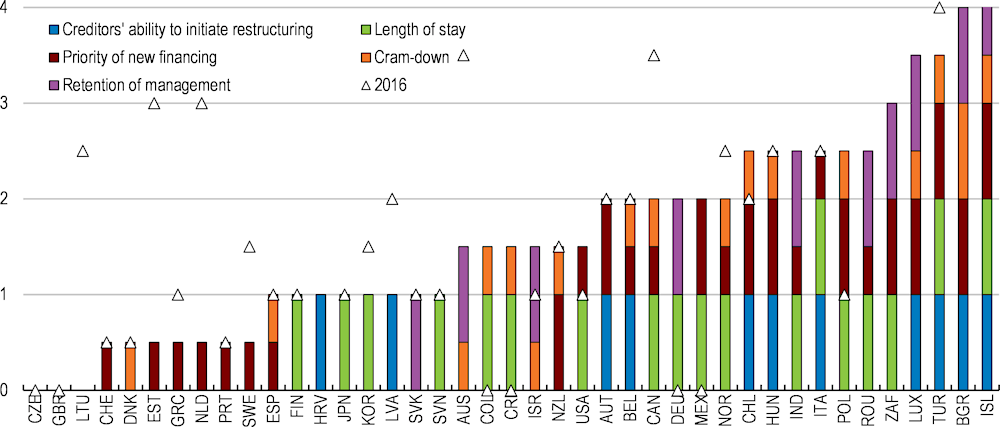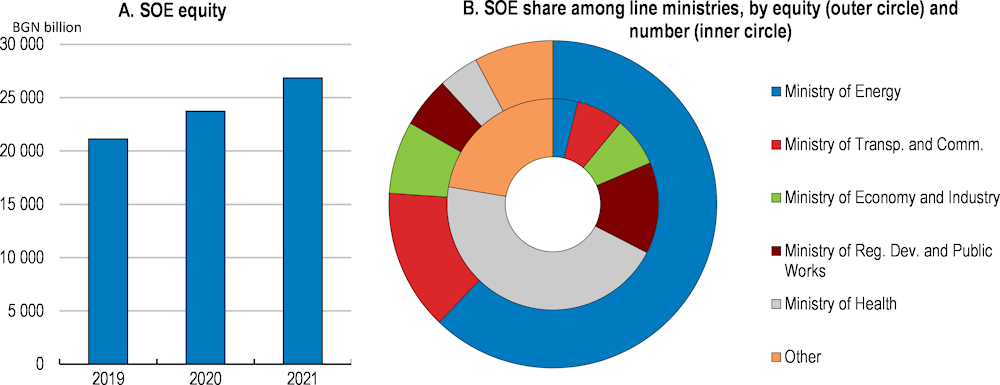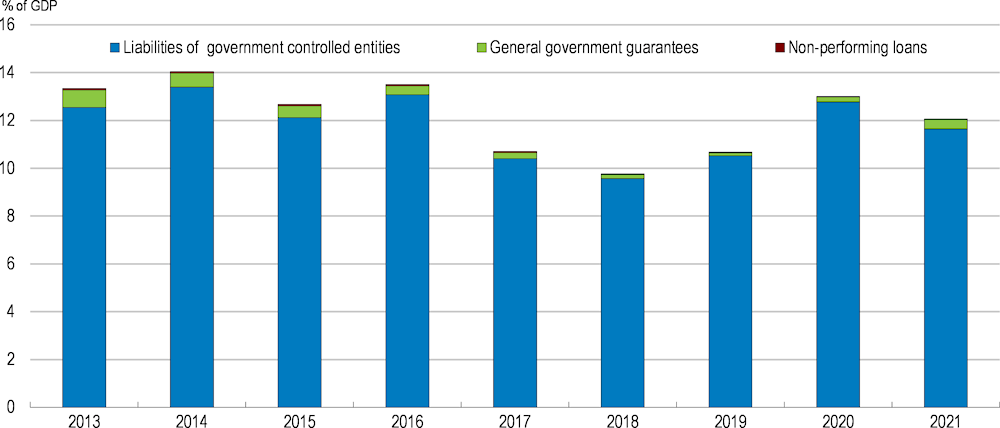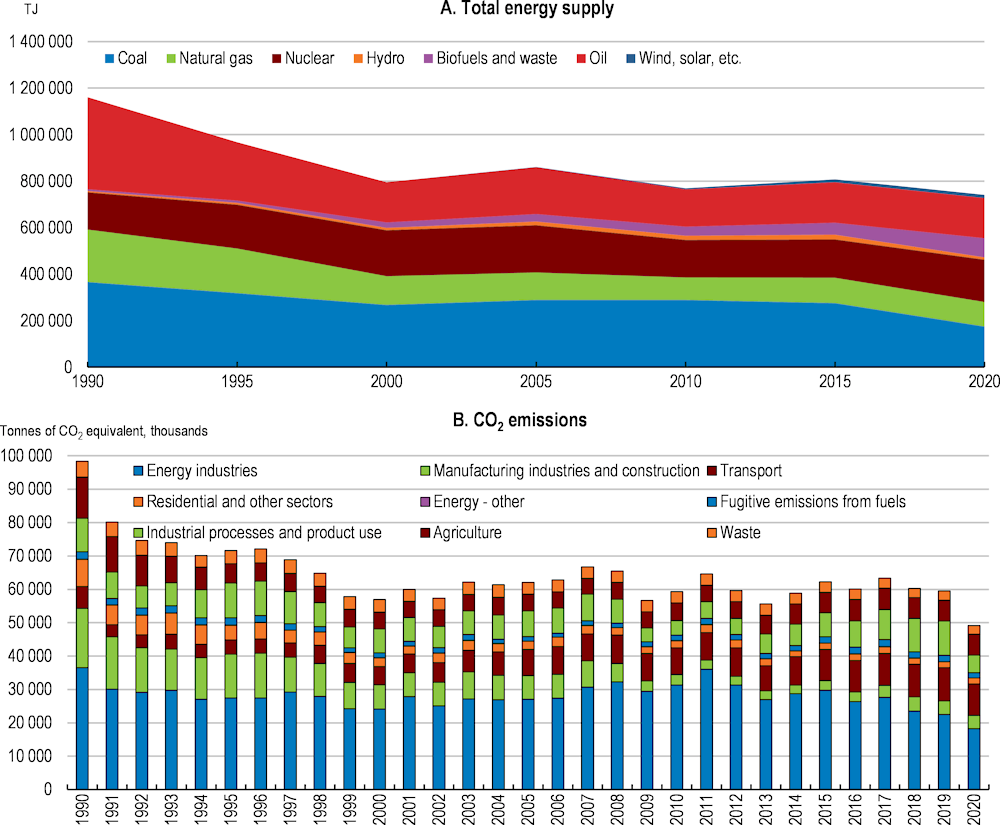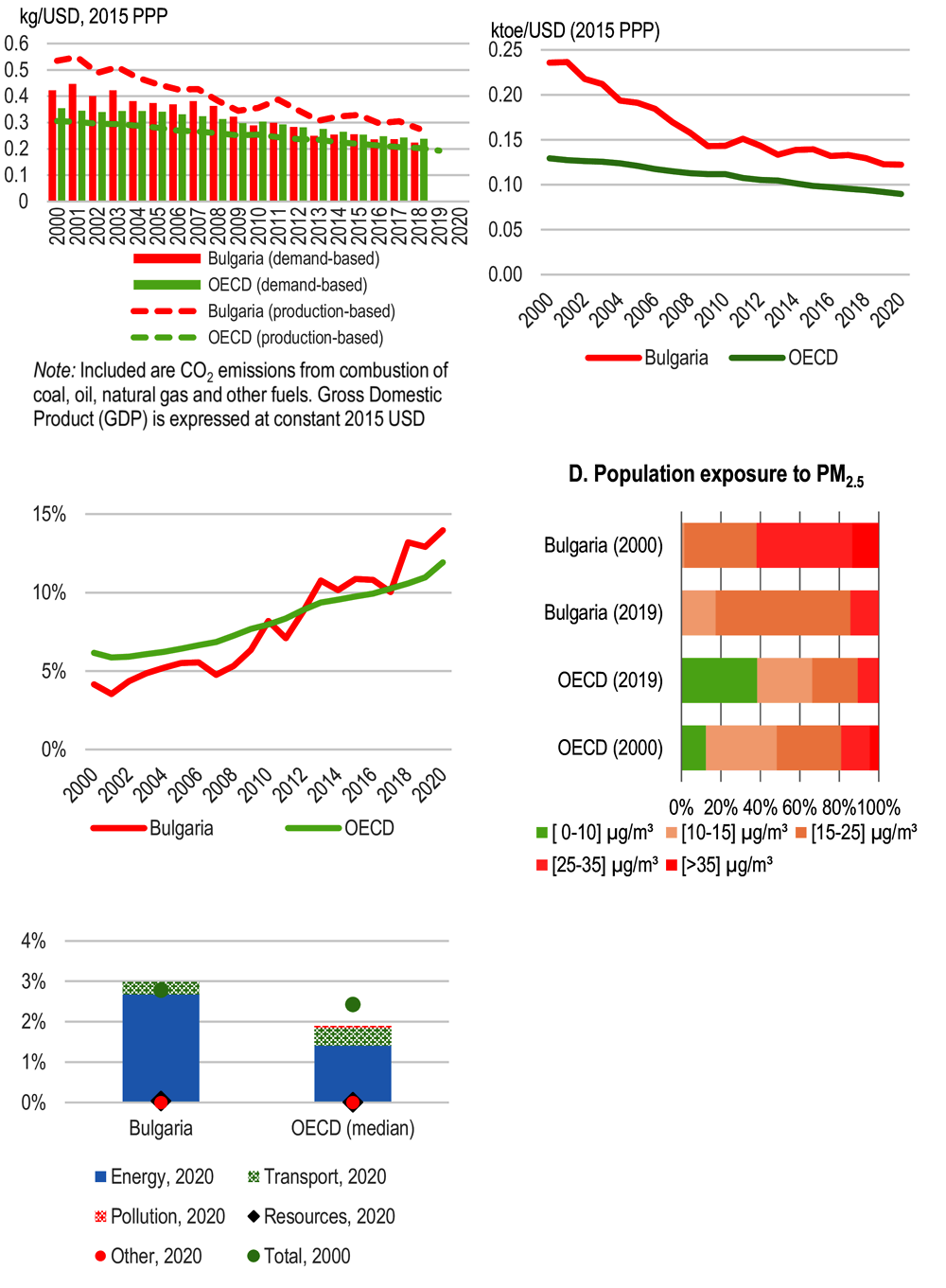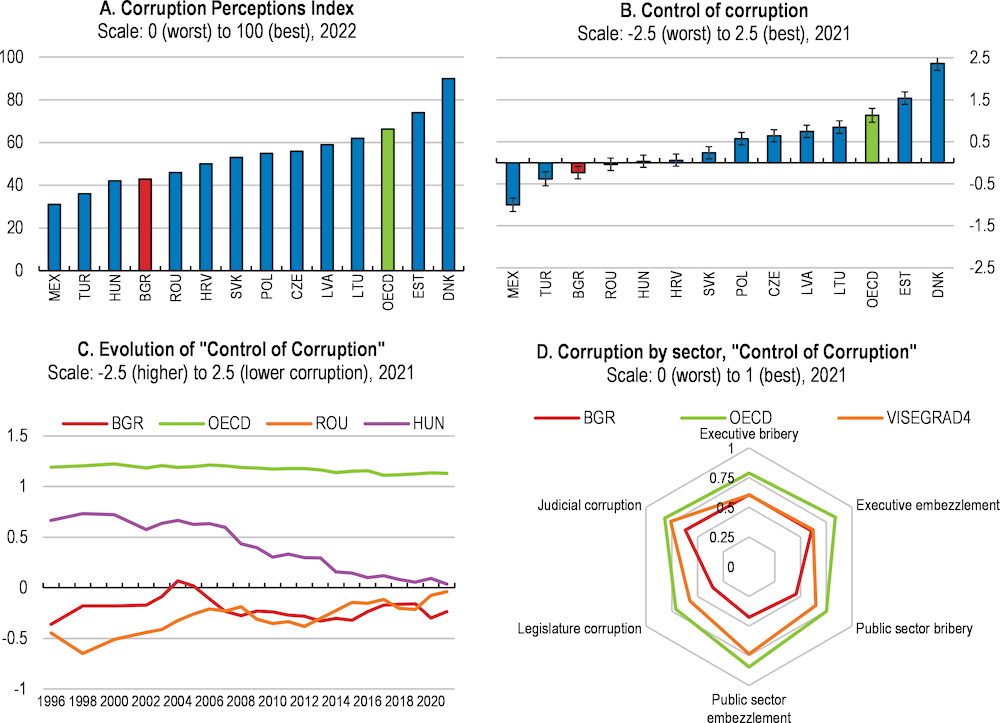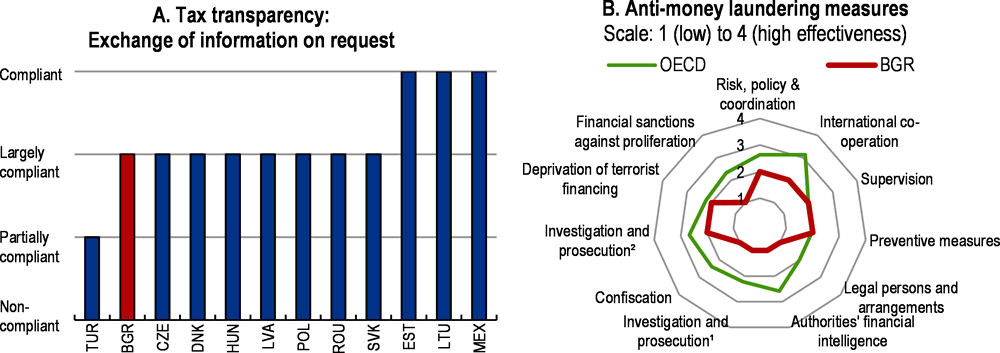[23] Adalet McGowan, M. and D. Andrews (2018), “Design of insolvency regimes across countries”, OECD Economics Department Working Papers, No. 1504, OECD Publishing, Paris, https://doi.org/10.1787/d44dc56f-en.
[24] André, C. (2023), “Insolvency regimes”, OECD Economics Department Working Papers, forthcoming.
[16] Bogdanov, L. (2020), Against the Flow: Can Bulgaria Survive Progressive Counter-Revolution in Labor Taxation?, https://4liberty.eu/wp-content/uploads/2020/04/LATCHEZAR-BOGDANOV-AGAINST-THE-FLOW-CAN-BULGARIA-SURVIVE-PROGRESSIVE-COUNTERREVOLUTION.pdf (accessed on 28 March 2023).
[39] Brussarski (2021), The Bulgarian Flat Tax is No Longer What It Was, http://faba.bg.
[7] Bulgarian National Bank (2022), Banks in Bulgaria, April-June 2022, https://www.bnb.bg/bnbweb/groups/public/documents/bnb_publication/pub_b_in_b_2022_06_en.pdf (accessed on 2023 March 28).
[1] Bulgarian National Bank (2022), Economic Review Q3, https://www.bnb.bg/bnbweb/groups/public/documents/bnb_publication/pub_ec_r_2022_03_en.pdf (accessed on 28 March 2023).
[21] Cavassini, F. et al. (2022), “Pro-Productivity institutions at work: Country practices and new insights on their set-up and functioning”, OECD Productivity Working Papers, No. 32, OECD Publishing, Paris, https://doi.org/10.1787/f5a3a2df-en.
[37] Center for the Study of Democracy (2017), Evaluating governance and corruption risks in Bulgaria, http://www.csd.bg,.
[28] D’Arcangelo, F. et al. (2022), “A framework to decarbonise the economy”, OECD Economic Policy Papers, No. 31, OECD Publishing, Paris, https://doi.org/10.1787/4e4d973d-en.
[4] de la Maisonneuve, C. and B. Egert (2023), “The impact of the war on human capital and productivity in Ukraine”, OECD Economics Department Working Paper.
[17] Djankov, S. (2014), Bulgaria: The Greatest Vacillations, https://www.nes.ru/dataupload/files/CV/Papers/Bulgaria%20The%20Greatest%20Vacillations.pdf (accessed on 10 December 2022).
[22] Égert, B. (2018), “The quantification of structural reforms”, OECD Economics Department Working Papers, No. 1482, OECD Publishing, Paris, https://doi.org/10.1787/6d883be1-en.
[9] European Banking Authority (2022), Final Report on responses to the non-bank lending request from the CfA on digital finance, https://www.eba.europa.eu/sites/default/documents/files/document_library/Publications/Reports/2022/1032199/Report%20on%20response%20to%20the%20non-bank%20lending%20request%20from%20the%20CfA%20on%20Digital%20Finance.pdf (accessed on 28 March 2023).
[38] European Commission (2022), 2022 Rule of Law Report: Country chapter on the rule of law situation in Bulgaria, https://commission.europa.eu/system/files/2022-07/10_1_193975_coun_chap_bulgaria_en.pdf.
[2] European Commission (2022), Convergence Report, https://economy-finance.ec.europa.eu/system/files/2022-06/ip179_en.pdf (accessed on 28 March 2023).
[41] European Commission for Democracy through Law (2022), Bulgaria Opinion on the Draft Amendments to the Criminal Procedure Code and the Judicial System Act, https://www.venice.coe.int/webforms/documents/default.aspx?pdffile=CDL-AD(2022)032-e.
[36] European Commission; OECD (2016), General guide on the public procurement legislative environment in Bulgaria, https://www.oecd.org/gov/public-procurement/publications/guide-public-procurement-legislation-bulgaria.pdf.
[8] European Parliament (2022), Close cooperation for bank supervision: The cases of Bulgaria and Croatia, https://www.europarl.europa.eu/RegData/etudes/IDAN/2022/699523/IPOL_IDA(2022)699523_EN.pdf (accessed on 28 March 2023).
[40] Guillemette, Y. (2023), “Accounting for the green transition in the OECD global long-term model”, OECD Economic Department Working Papers, forthcoming.
[13] Guillemette, Y. and D. Turner (2021), “The long game: Fiscal outlooks to 2060 underline need for structural reform”, OECD Economic Policy Papers, No. 29, OECD Publishing, Paris, https://doi.org/10.1787/a112307e-en.
[18] Győrffy, D. (2022), “The middle-income trap in Central and Eastern Europe in the 2010s: institutions and divergent growth models”, Comparative European Politics, Vol. 20/1, pp. 90-113, https://doi.org/10.1057/s41295-021-00264-3.
[31] Mineva (2020), Parliament oversight on anti-corruption in Bulgaria, https://idscs.org.mk/wp-content/uploads/2020/09/DanielaMinevaEN.pdf (accessed on 28 March 2023).
[12] Ministry of Finance (2022), Fondovete na EC v Bulgaria, https://www.minfin.bg/bg/1168 (accessed on 28 March 2023).
[5] Nitzov, B. (2022), “Can Bulgaria survive without Russian oil?”, Center for the Study of Democracy Working Paper, https://csd.bg/fileadmin/user_upload/publications_library/files/2022_05/Working_Paper_May2022_EN.pdf (accessed on 28 March 2023).
[20] OECD (2023), “OECD Skills Strategy Bulgaria: Assessment and Recommendations”, OECD Skills Studies, forthcoming.
[32] OECD (2022), OECD Investment Policy Review: Bulgaria, OECD Investment Policy Reviews, OECD Publishing, Paris, https://doi.org/10.1787/6a0325b7-en.
[33] OECD (2022), Public Integrity Scan of Bulgaria - Strengthening Institutional Co-operation and Standards in Integrity, https://www.oecd-ilibrary.org/docserver/4fd43a10-en.pdf?expires=1675945163&id=id&accname=ocid84004878&checksum=DD33EA37A1EC3F9A4F0BF492D37131FA.
[3] OECD (2022), Reaching Out and Activating Inactive and Unemployed Persons in Bulgaria, Connecting People with Jobs, OECD Publishing, Paris, https://doi.org/10.1787/7b91154a-en.
[30] OECD (2022), Redesigning Ireland’s Transport for Net Zero: Towards Systems that Work for People and the Planet, OECD Publishing, Paris, https://doi.org/10.1787/b798a4c1-en.
[6] OECD (2021), OECD Economic Surveys: Bulgaria 2021: Economic Assessment, OECD Publishing, Paris, https://doi.org/10.1787/1fe2940d-en.
[29] OECD (2021), Transport Strategies for Net-Zero Systems by Design, OECD Publishing, https://doi.org/10.1787/0a20f779-en.
[14] OECD (2020), OECD Review of the Slovak Council for Budget Responsibility, https://www.oecd.org/gov/budgeting/independent-fiscal-institutions-review-slovak-council-budget-responsibility-report-2020.pdf (accessed on 28 August 2023).
[15] OECD (2019), Lithuania’s Independent Fiscal Institution Budget Policy Monitoring Department (BPMD) in the National Audit Office of Lithuania, Independent Fiscal Institutions Review, https://www.oecd.org/gov/budgeting/lithuania-independent-fiscal-institutions-review-2019-en.pdf (accessed on 28 March 2023).
[19] OECD (2019), OECD Economic Surveys Estonia, OECD Publishing, Paris, https://doi.org/10.1787/f221b253-en.
[25] OECD (2019), OECD Review of the Corporate Governance of State-Owned Enterprises Bulgaria, https://www.oecd.org/corporate/ca/Corporate-Governance-of-SOEs-in-Bulgaria.pdf.
[34] OECD (2017), OECD Reccomendation of the Council on Public Integrity, https://www.oecd.org/gov/ethics/OECD-Recommendation-Public-Integrity.pdf.
[27] OECD (2015), OECD Guidelines on Corporate Governance of State-Owned Enterprises, 2015 Edition, OECD Publishing, Paris, https://doi.org/10.1787/9789264244160-en.
[35] OECD (2003), Managing conflict of interest in the public service : OECD guidelines and overview., OECD Publishing, Paris, https://www.oecd.org/gov/ethics/48994419.pdf.
[11] Park (2021), “Budgeting in Bulgaria 2021”, OECD Journal of Budgeting, Vol. 21/2, https://doi.org/10.1787/3a4cc3aa-en.
[26] Public Enterprises and Control Agency (2020), Annual summary report on the state-owned public enterprises for 2020, https://appk.government.bg/upload/5257/Annual+summary+report+2020+.pdf (accessed on 28 March 2023).
[10] Vasileva, V. (2019), “Development of consumer lending by non-bank credit companies in Bulgaria”, Economic Archive 1, https://www.ceeol.com/search/article-detail?id=762925 (accessed on 28 March 2023).






